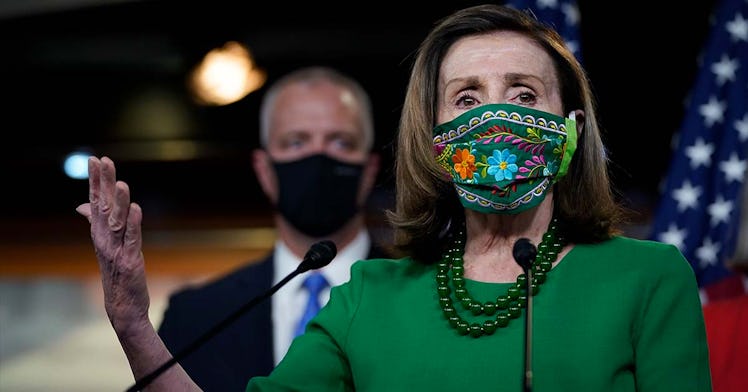The Stimulus Package (And Checks) Passed The House — Here’s What’s Next.
One chamber down, one to go.

The next COVID-19 recovery package took a big step towards becoming law in the wee hours of the morning of Saturday, February 27. The House voted 219-212 to pass President Biden’s $1.9 trillion plan, sending it over for consideration in the Senate, where things get a bit trickier.
Here’s what you need to know about what’s in the bill the House just passed, its prospects for becoming law, and, crucially, what it means for the timing of the next stimulus payment.
What’s in the bill?
With a $1.9 trillion price tag, it should be no surprise that this bill does a lot: expansions of the child and earned income tax credits, funding for state and local governments, an extension of federal unemployment insurance, healthcare and vaccine funding, the infamous $1,400 stimulus, and more.
What about the minimum wage increase?
The Senate parliamentarian advised last week that the minimum wage could not be passed with budget reconciliation, the so-called “fast track” that allows the Democrats to avoid a GOP filibuster. Her ruling has no bearing on what the House does, however, so the minimum wage increase to $15 by 2025 is still in the bill the House passed.
The Senate will now debate and pass its own version of the bill. A conference committee will settle on a single draft, which will then be voted on by both bodies and, if passed, sent to the president for his signature.
What does this mean for the next stimulus payment?
The on-schedule passage of the bill in the House bodes well for the next round of stimulus payments starting to go out later this month. Senate Majority Leader Chuck Schumer’s plan for the bill to become law by March 14—the day expanded federal unemployment benefits are set to expire—would have been imperiled by any delays in the House.
Still, if you’re anxiously awaiting a third stimulus payment, it’s a bit too early to completely relax. There remain several things leading Democrats could do to get the minimum wage into the final package, from firing the parliamentarians to overruling her decision to abolishing the filibuster, rendering her decision moot.
Despite their public support for raising the minimum wage, Biden, Harris, and Schumer have thus far given no indication that they are going to do any of this. A rogue senator or faction of senators could withhold their vote until the minimum wage hike is re-added to the legislation, but buckling to that pressure would open the door to a similar maneuver from the two Democratic senators on record against the minimum wage increase.
If that happens, the bill would likely be delayed, but it probably isn’t going to. On a policy level, there’s a lot in the legislation that both the Sanders and Manchin wings of the party support. And given the national crisis, it’s in everyone’s interest to pass these proposals into law as soon as possible.
Politically, derailing Biden’s first big legislative effort would also be disastrous for his presidency and, in turn, the ability of whoever did the derailing to work with the president through the rest of his term.
This article was originally published on